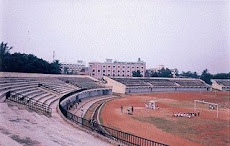 Following is an excerpt from an article published in Hindustan Times. The comparative table is from Mint.
Following is an excerpt from an article published in Hindustan Times. The comparative table is from Mint.If you thought that not all was well with Delhi as with many other large Indian cities — official data backs your claim. Urban local bodies have for the first time sent data to the Centre on services like water supply, storm water drainage, and solid waste management, and the Capital is not faring so well. Delhi is among 25-30 cities that have sent their data to the Centre. The Centre had asked for the data about services cities deliver, to compare them against certain benchmarks. Linked to the provision of these services would be central funding for urban projects. The good news: having the data may perhaps help our ailing cities to correct course. “Read them like a medical bulletin: how healthy are you?” said an official of the Ministry of Urban Development, requesting anonymity.
“Only when you take the test do you take the first step towards better health.” The figures: Only 4 per cent of Delhi’s households enjoy household garbage collection facility. Meaning, most MCD areas may have no household collection, as posh NDMC areas are likely to have household collection. By contrast, Chandigarh has waste collection from 96 percent of its households.
Delhi has had 206 incidents of waterlogging — 45 minutes of waterlogging with six-inch high water level is seen as one incident of waterlogging — this year. But the city is not the worst here. Surat with 290 and Ahmedabad with 214 water-logging incidents are worse off.
About 29 per cent of Delhi’s households have no access to water supply. In this, Shimla is best, with 98 percent water supply, and Berhampur worst with just 29 percent water supply coverage.
52 per cent of the water supplied in Delhi is non-revenue water — meaning water that is not paid for, and that lost in leakage. For Dharamshala it is just 6 percent; for Trivandrum just 18 percent.
Sources: Hindustan Times and Mint (Link: http://www.hindustantimes.com/News-Feed/newdelhi/Capital-s-country-cousins-in-better-civic-health/Article1-490268.aspx)

















.jpg)


















































No comments:
Post a Comment